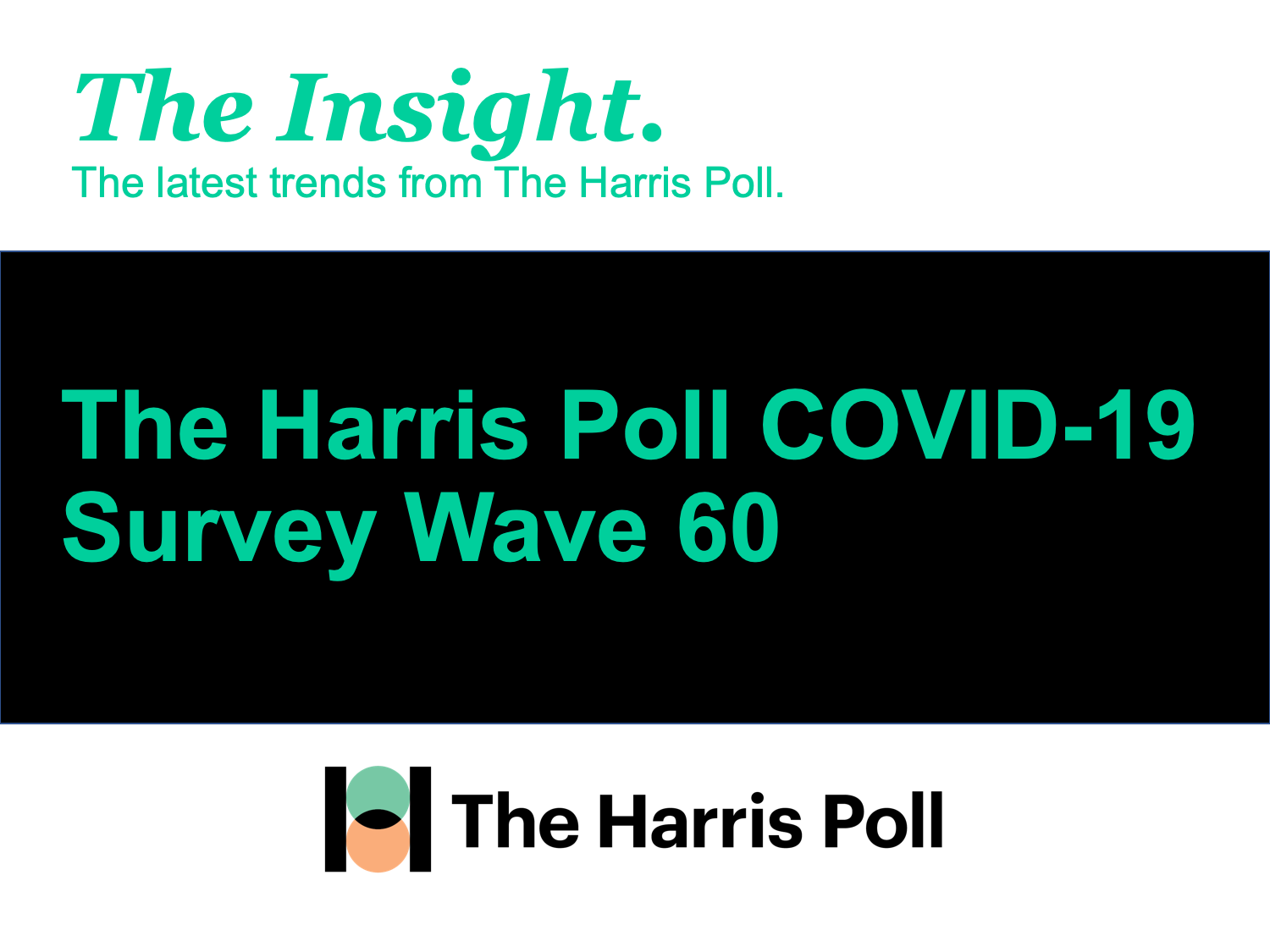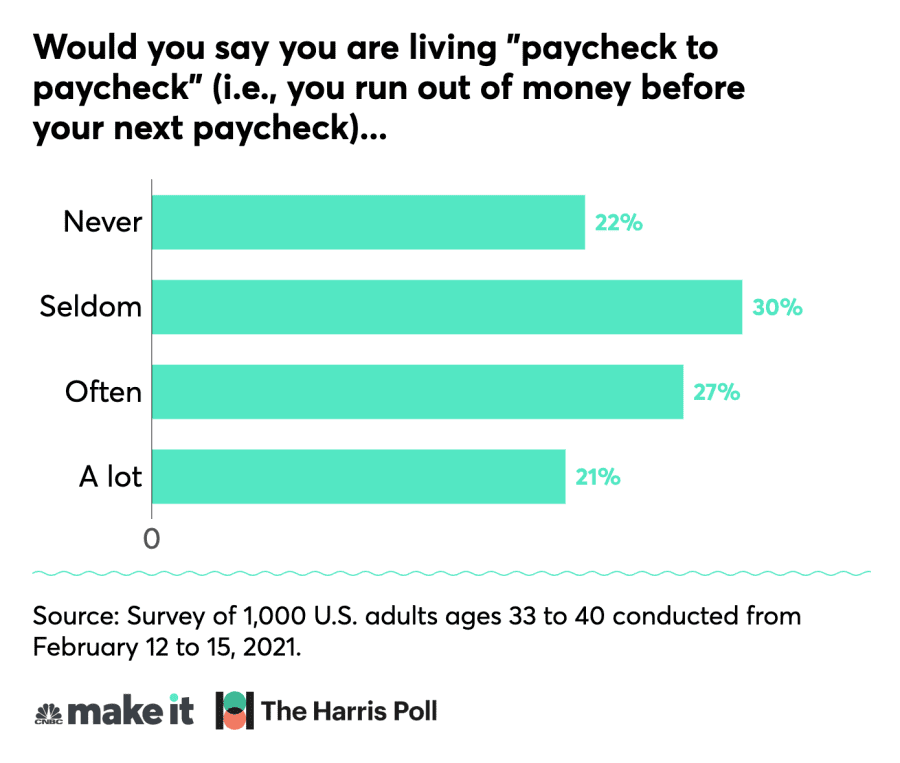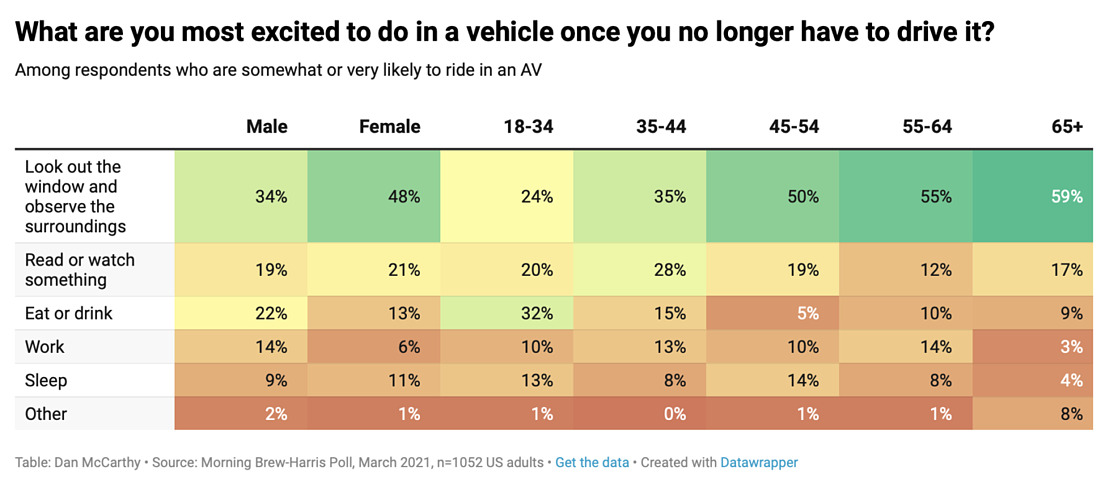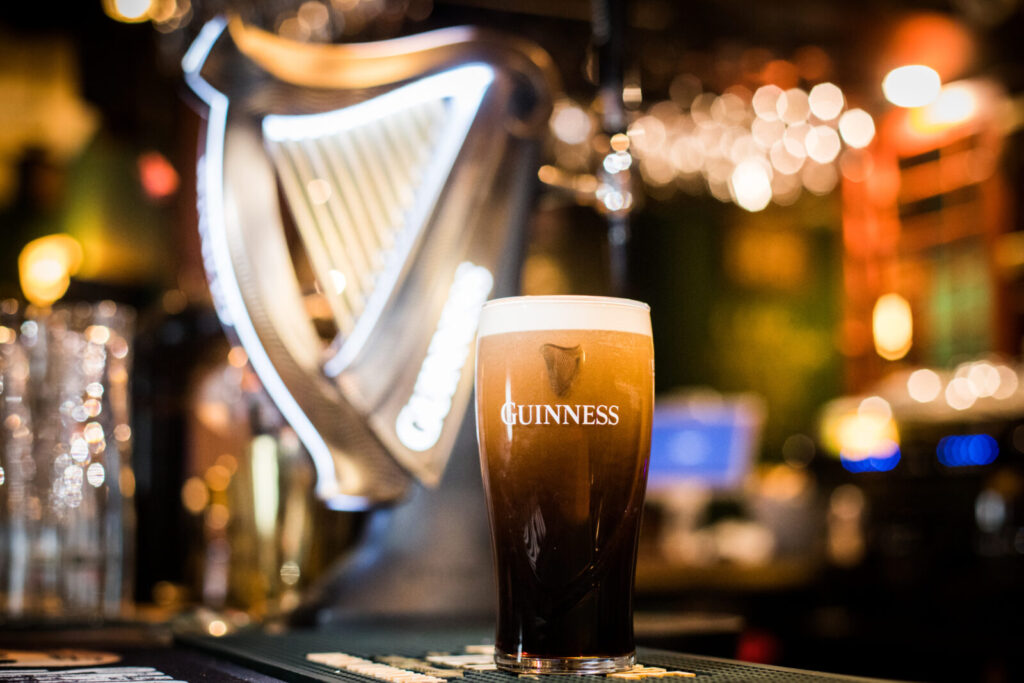Brief • 3 min Read

In The Harris Poll COVID-19 Tracker (Week 60) fielded April 16th to 18th, 2021 among 2,024 U.S. adults, we look at updated CDC travel guidelines, the older millennial wealth gap, more about autonomous vehicles, effective Earth Day campaigns, and a revolution to online investing.
As a public service, our team has curated key insights to help leaders navigate COVID-19. Full survey results, tables, and weekly summaries can be accessed for free at The Harris Poll COVID-19 Portal. We will continue to actively field on a regular cadence to track the shifts in sentiment and behaviors as the news and guidelines evolve.
Will the New CDC Travel Guidelines Incentivize Vaccinations? Maybe
Given the new CDC travel guidelines allowing more freedom for vaccinated people, we took the pulse to see how this impacts vaccine likelihood.
- Unvaccinated choose quarantine over needles: Surprisingly, only a little over a third of unvaccinated Americans (35%) say skipping mandatory quarantine and COVID testing while traveling domestically is a driver to get vaccinated.
- Fence-sitters are more easily persuaded: However, nearly half (45%) of those who consider their vaccination plan to be “whenever I get around to it” report that knowing they can travel within the US without testing or quarantining makes them more likely to want to get the vaccine.
- Required vaccine passports could be the tipping point: (41%) of Americans say they are more likely to get vaccination if this becomes a requirement for traveling domestically, and (32%) internationally. Millennials are significantly more likely compared to Boomers both domestically (49% vs. 28%) and internationally (45% vs. 19%).
Takeaway: As of now, lifting testing and quarantine requirements for travel are not overwhelmingly compelling reasons for Americans to want to get vaccinated anymore than they already do, but the narrative could change if it becomes a requirement.
Older Millennials Don’t Have as Much Wealth As Their Parents Did at the Same Age, But They’re Catching Up: CNBC-Harris Poll
This week in our partnership series with CNBC on “Middle-Aged Millennials”, we look at how Older Millennials compare to their parents when they were the same age, where they are lacking, and how they are working towards closing the gap. Here is what we found:
- They aren’t just buying avocado toast: More than half (59%) of Middle-Aged Millennials (Age 33-40) are homeowners. But, two-thirds (68%) also report having outstanding student loans.
- Nearly a third (29%) of older millennials say they have a lot of disposable income left in their budgets at the end of each month – accounting for paying for expenses like housing, car payments, utilities, and food.
- Not all Older Millennials are all living paycheck-to-paycheck: while half (52%) say they have escaped the dreaded cycle, though (48%) say they are often or a lot of the time doing so.

Takeaway: Five years ago, Older Millennials were (40%) poorer than previous generations were at the same stage of life. That wealth gap has shrunk in recent years, but it’s still too soon to tell if obstacles such as student loan debt burdens, rising living expenses and the effects of the COVID pandemic will push this generation permanently off course.
Your Guide to Autonomous Vehicles: Morning Brew-Harris Poll
There currently aren’t any self-driving vehicles available for purchase in any part of the world, but what if they were? A deeper look into what Americans think about autonomous vehicles in our poll with Morning Brew:
- Safety first: Nearly half (48%) of Americans said they’d feel “at least somewhat safe” in the passenger seat of a self-driving vehicle, but that number jumps to (59%) if they were in the driver’s seat.
- Two-fifths (41%) of Americans said they’d prefer to buy a self-driving vehicle from Tesla, over double the share who’d prefer to buy from a legacy automaker.
- If you’re not driving, enjoy the view: The majority of nearly every demographic said they would look out the window and observe surroundings if they no longer had to drive, with (59%) of 65+ saying so. The outliers are 18-34-year-olds who would most likely eat or drink (32%) with their newly freed hands.

Takeaway: Although not a reality (yet), it’s hard to deny that AVs are an intriguing technology that we could potentially see in our lifetime.
Younger Consumers Are Paying Attention to Earth Day Campaigns—but Don’t Want to Be Shamed: Ad Week-Harris Poll
A new Adweek-Harris Poll survey found that consumers responded better to messages of positivity and action. We partnered together to gauge sentiment around past Earth Day campaigns—which ones led consumers to buy, what’s been most memorable and how different strategies change consumers’ perception of brands.
- Go green, or don’t: Overall, consumers don’t feel strongly about whether brands chime in on sustainability issues around Earth Day – only (20%) said that it’s important for brands to advertise the holiday. Only (37%) said it’s important that brands make environmentally conscious decisions.
- But when broken down by generation, the picture shifts. Older consumers are more likely to say they’re trying to make environmentally conscious decisions each day (47%) of Boomers versus (40%) of Gen Zers and (37%) of Millennials.
- Over half (55%) of respondents said they’d be more likely to buy from a brand that highlighted preventative measures like recycling or prioritizing eco-friendly options in their Earth Day advertising, while just (41%) said they’d be motivated by an ad that focused on the negative impacts of human behavior on the environment.
Takeaway: In the end, consumers want to be motivated, and not shamed, into being eco-friendly.
Crypto Fans Are Revolutionizing Online Investing: The Boston Globe-Harris Poll
Harris Poll CEO Will Johnson writes in The Boston Globe how nothing seems too risky for more and more of us when it comes to online investing. The trend lines are strong enough to suggest that if this is a fad, it’s unlikely to end soon. Here’s what he found in a new survey:
- Crypto is gaining traction: (16%) of American adults today have money in cryptocurrencies such as bitcoin and Ethereum; (14%) own meme or viral stocks such as GameStop; and (11%) have purchased one-of-a-kind digital assets known as non-fungible tokens (NFTs).
- Roughly half of adults investing in cryptocurrencies, meme stocks, and tokens that certify ownership of digital collectibles like celebrity-issued art or video clips say they began their purchases in just the last six months, following the lead of Gen Z, who discovered these markets seven to 12 months ago.
- Who else is interested? A quarter of Black Americans and (15%) of Hispanics say they’ve bought NFTs, versus (8%) of white Americans. Minority adults are also much more likely to think that meme stocks and other unconventional assets will remain valuable in the long term.
Takeaway: Before you swap your Bitcoin or GameStop shares for an index fund or annuities, you might also want to think about this: When that financial adviser was shooing people away from cryptocurrencies in 2019, bitcoin was going for $4,000. Today it’s worth $59,900.
Subscribe for more Insights
Subscribe to our newsletter for the latest trends in business, politics, culture, and more.
Download the Data
This survey was conducted online within the U.S. by The Harris Poll from April 16 to 18, among a nationally representative sample of 2,024 U.S. adults.
Download
Subscribe for more Insights
Subscribe to our newsletter for the latest trends in business, politics, culture, and more.
Download the Data
This survey was conducted online within the U.S. by The Harris Poll from April 16 to 18, among a nationally representative sample of 2,024 U.S. adults.
DownloadRelated Content








